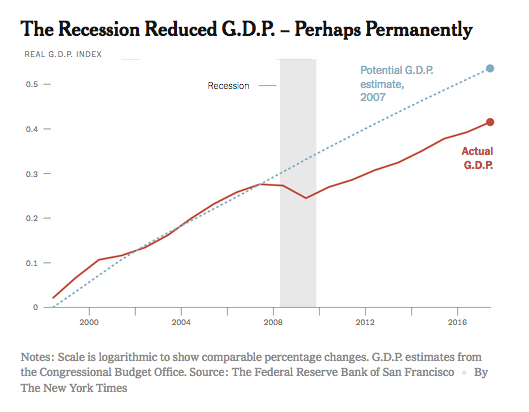The economy has come a long way from the dark days of 2008, when the collapse of Lehman Brothers and the bailout of big banks led to worldwide economic disaster. For much of the last decade, the economy has been growing and the stock market has been rising. But this steady climb is lulling bankers, lawmakers and regulators into repeating mistakes that contributed to that crisis and cost millions of people their jobs, homes and savings.
The financial system and economy are clearly on much firmer ground than they were a decade ago. Wages are barely keeping up with inflation, but the unemployment rate, which climbed as high as 10 percent, has fallen to 3.9 percent. The housing market, once crippled by foreclosures, has sprung back to life, with home prices scaling new heights in many parts of the country. Banks, once dependent on taxpayer dollars to keep their doors open, are raking in profits.
Much of the credit for the recovery belongs to the swift response from the Obama administration, the Federal Reserve and Congress. Lawmakers and President Barack Obama worked to stimulate the economy by nearly $1 trillion. The Fed pumped life into the financial system by lowering interest rates, buying bonds and rescuing institutions like the American interest rates, buying bonds and rescuing institutions like the American International Group, which had insured financially compromised banks. Congress enacted the Dodd-Frank law, imposing tighter regulations on financial institutions and limiting their ability to take bet-the-farm risks with borrowed money. The law helped instill confidence in banks that had squandered their credibility by blowing billions on dubiously engineered investments that few understood and fewer could explain in plain English. It also created the Consumer Financial Protection Bureau, which defended consumers from predatory businesses. And Congress and Mr. Obama extended health insurance to 20 million people with the Affordable Care Act, protecting vulnerable families from crushing medical bills.




